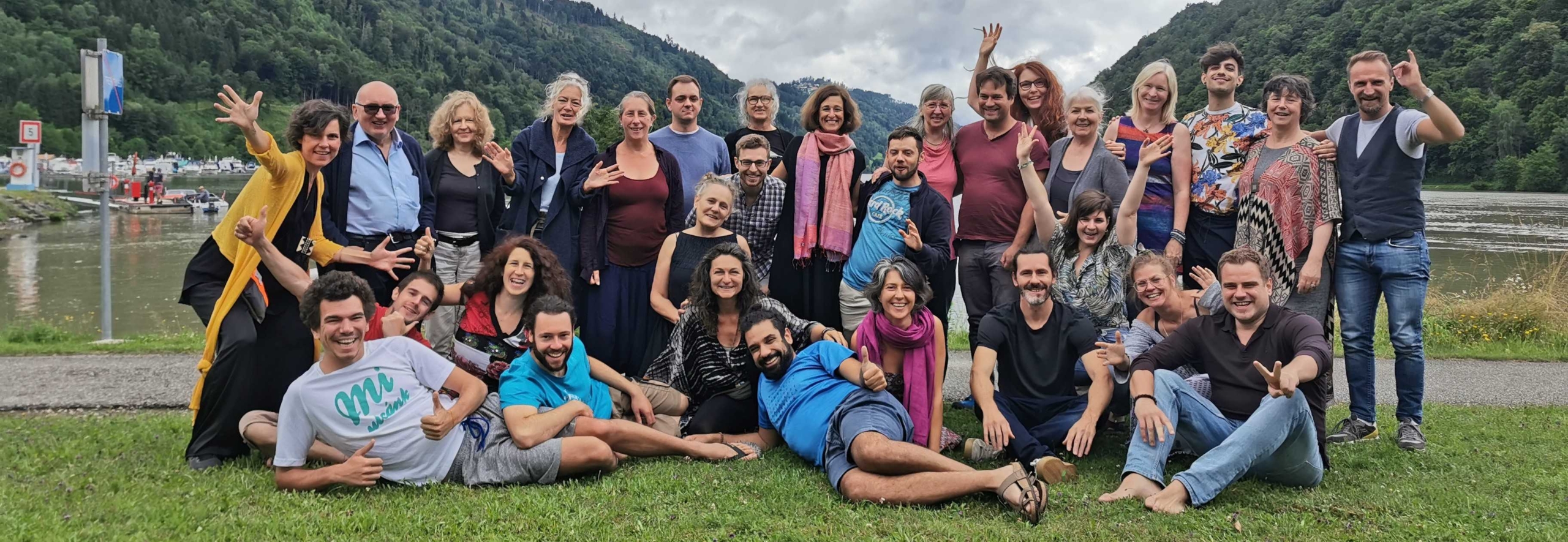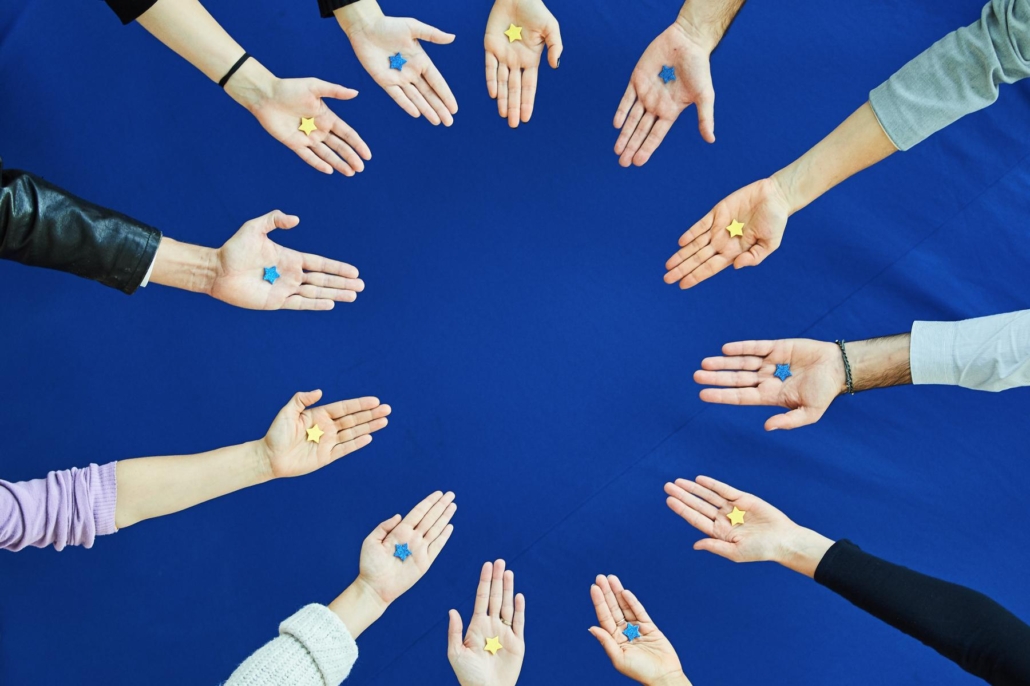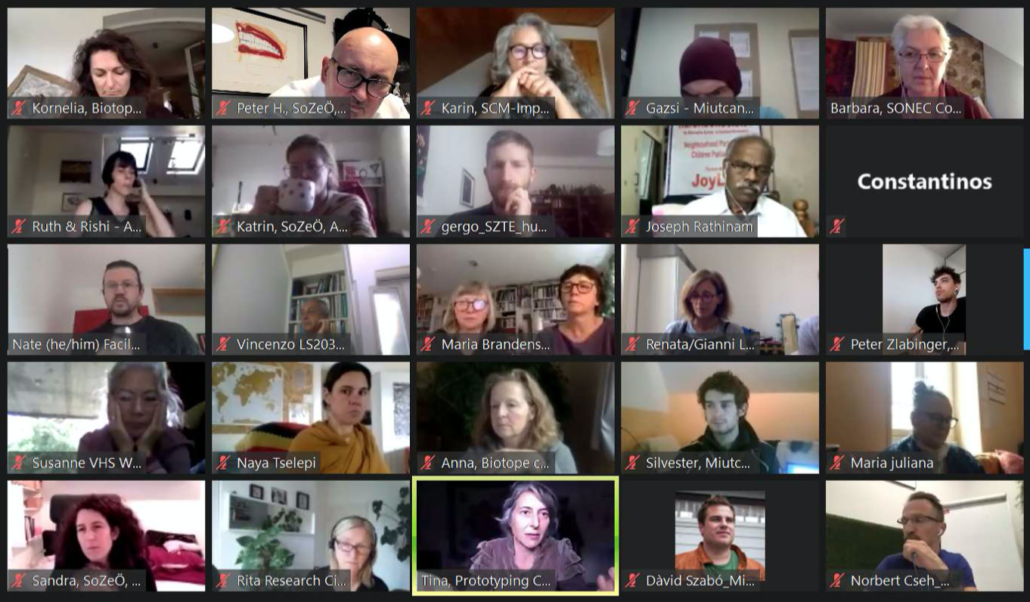
SONEC
WHAT IS SONEC
SONEC (SOciocratic NEighborhood Circles) is a 26 month-long Erasmus+ project – funded by the EU’s “KA2 – Cooperation for innovation and the exchange of good practices / KA204 – Strategic Partnerships for adult education” program – that addresses serious social and environmental issues by applying neighborhood-based, bottom-up, participatory and inclusive decision making processes.

BACKGROUND: WHERE DOES THE IDEA COME FROM
Despite significant efforts by European policymakers, the EU is still far away from achieving the targets set by the European 2020 strategy, the EU Green Deal and the UN Sustainable Development Goals. In order to reach the target, an acceleration to legislative changes and a wider participation of citizens to the transformative process seem to be essential.
SONEC is an innovative idea inspired by the Neighbourhood Parliaments’ socio-political model, successfully implemented in India since the 1990s. Here, more than 400.000 neighbourhood-based citizen groups have been established to help their national and local governments reach the SDG goals, by addressing issues such as climate change, human rights, health, poverty and gender equality, among others.
SUSTAINABLE DEVELOPMENT GOALS
The Sustainable Development Goals (SDGs) are the world’s shared plan to end extreme poverty, reduce inequality, and protect the planet by 2030.
OBJECTIVES: WHAT DO WE WANT TO ACHIEVE
By adapting the Indian Neighbourhood Parliaments model to the diverse European realities and by including the EU values of participation, resilience, safe and peaceful coexistence, inclusion, equality, etc., SONEC wishes to provide an effective answer to both the democracy-crisis and the climate-crisis that our society is currently facing.
SONEC aims at generating results that are applicable on an European level to all municipalities and their citizens.
PARTNERS: WHO WE ARE

The SONEC partnership includes 9 organizations from 7 European countries (Austria, Germany, Greece, Hungary, Italy, The Netherlands, UK), that bring into the project diverse social backgrounds, experiences and knowledge. Local governments, scientific platforms, various educational institutions, existing neighborhood and citizen participation initiatives with a longer or shorter history are also participating. This allows for mutually enriching exchanges among partners, as well as indirect benefits for other European stakeholders.
ACTIONS: WHAT WE DO
The SONEC partnership is researching and exchanging best practices for neighbourhood-based and sociocratically organized projects in Europe and India.
- Throughout the 26 months of the project, SONEC’s partners develop together the general concept for Sociocratic Neighbourhood Circles. Through which the European values, as well as the objectives of the Europe 2020 Strategy and the European Green Deal, are promoted.
- The partners elaborate a Manual that details the SONEC concept and deliver it to hundreds of Municipalities and associations around Europe, to make the SONEC concept and its potential for social and ecological transformation known in all partner countries and beyond.
- During the 26 month of this exchange-project the participants will be trained to become expert SONEC facilitators. SONEC facilitators support the implementation of Sociocractic Neighborhood Circles in various communities.
METHODOLOGY: HOW WE DO IT
The SONEC methodology follows the Sociocratic Circle Method SCM – or “Sociocracy”- an organisational method based on four basic principles, that help strengthen the responsibility of the individual within the organization.
Created in the 1970s in the Netherlands, Sociocracy has spread throughout the world.
Today about half of the 400.000 Indian Neighbourhood Parliaments have replaced majority-voting with sociocracy; sociocracy has also played a key role in the success of co-housing projects in Vienna since 2010.
The main pillar of sociocracy is consent-based decision making, where everyone is heard and every opinion is included in the final decision. That leads to the fact that everybody stands behind all decisions and has a responsibility in it.
SONEC believes that these circles could enhance behavioural change by sharing knowledge and information, as well as by providing a supportive network for their members. For this, it is essential that the group norms fulfil a set of basic principles in line with European values (tolerance, mutual respect and non-discrimination, solidarity, gender equality), and that they function in a pleasant and efficient way.
TARGET GROUP: WHOM FOR and why
The main target group of SONEC are European municipalities and their citizens. In order to promote the European values we need the engagement of citizens. Citizens live in neighbourhoods, this is where they get to know each other, build relationships and take measures to achieve the urgent ecological transformation of society. Citizens who take responsibility in their neighbourhoods also provide feedback and support to their municipalities towards problem solving.
OUTCOME/tangible deliverables
The SONEC-partnership creates a 40 pages manual with all relevant information. The manual includes reports and evaluations of pilot-projects, success-criteria and conditions by which citizens and municipalities can prepare the ground for the implementation of SONEC in their neighborhoods.
After the successful implementation of the SONEC partnership, participants will use the acquired knowledge for the next Erasmus+, titled: “Innovation partnership to develop a curriculum for SONEC-Facilitators”
In the longer term, if municipalities and citizens discover the potential of SONEC, a major transformation of the world is to be expected.
Interested? Get in touch with us!
Use the form below or send us an email to [email protected]
We will reach back to you shortly!



